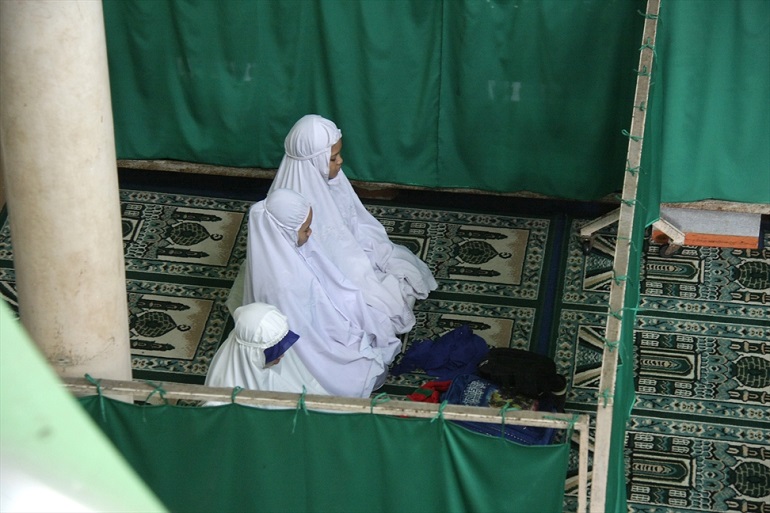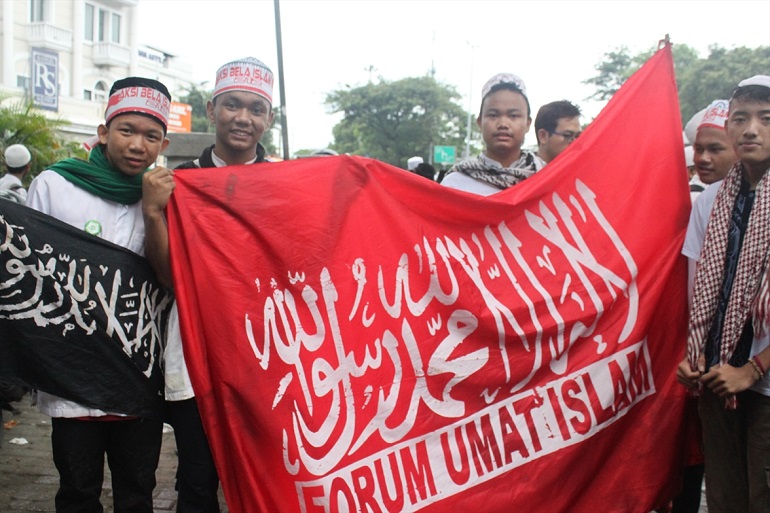
Terrorism in Indonesia is now carried out by “entire families, including mothers and children”, one local police chief noted, three weeks on from the suicide blasts on three churches and a police station that claimed 27 lives, including 13 attackers.
In raids following the series of bomb attacks, Jakarta security forces arrested 41 suspected terrorists, while four others were killed in counter-terrorist operations, AsiaNews reported.
Jakarta police chief Tito Karnavian told local media on 1 June that the rapid response of the security forces should encourage Indonesians.
The attacks in Surabaya, the capital of East Java province, were executed by two families belonging to Jemaah Ansharut Daulah (JAD), Indonesia’s largest militant group, which was formed in 2015 and has pledged allegiance to the Islamic State.
Zachary Abuza of the National War College in Washington DC called the use of children in the attacks “absolutely unprecedented” in the region, and told the BBC it showed the “ideological indoctrination” of the group, which has sought to expand globally since losing territory in the Middle East, according to the International Centre for Political Violence and Terrorism Research.
According to official figures, 1,200 former IS fighters have returned home to Indonesia from Syria, though “unofficially” there are “at least 2,000”, a counter-terrorism official told Channel News Asia.
“The damage caused by ISIS was expected to last longer than its caliphate proper, and in Indonesia the group’s impact already seems to have been to expand and transform local extremist movements,” reported the New York Times. “Local Islamist extremists still go after the same targets: religious minorities and law enforcement. But their tactics have shifted: now women and children are participating in suicide attacks.”
The paper noted that the recent attacks came at the beginning of Ramadan, the Muslim holy month of fasting, which it said was “typically a time of renewed militancy among extremists”. It quoted one message circulated via the popular social media app Telegram following the prison attack: “Support in your own cities the mujahedeen [Islamic fighters] who caused the riot! Burn the assets of non-believers, idolaters, apostates and hypocrites! Burn their malls! Destroy the economy of the non-believers by withdrawing your money from their banks! The momentum only comes once; don’t fail to use it.”
Ian Wilson, a lecturer in Politics and Security Studies at the Asia Research Centre at Murdoch University in Perth, Australia, told Asia-Pacific magazine The Diplomat the recent attacks also exhibited increasing sectarian division ahead of the 2019 presidential elections.
“The attack on religious minorities, previously a hallmark of Jemaah Islamiyah, has returned, it seems, rather than the singular focus on attacking the police that we’ve seen in recent years,” he said.
Jihad in Indonesia
A 2015 briefing paper into understanding the roots of Islamic fundamentalism in Indonesia, by Christian charity Open Doors International noted that, while hard-line groups wishing to build an Islamic state have always been part of the Indonesian religious landscape, under the country’s first president, Sukarno, and his successor, Muhammad Soeharto, they did not have much room to actively spread their ideas.
“Attempting to ensure the unity and secularity of Indonesia, Soeharto, with his strong secularist vision, suppressed any fundamentalism and radicalism movements,” said Open Doors. “Just like Sukarno, in his early years Soeharto viewed them as a threat to his power. Many Islamic radical leaders thus left Indonesia to seek asylum in other Islamic countries such as Malaysia and the Middle East.” Their exile opened up opportunities to join a larger jihadist network, the charity said.
According to Open Doors, this changed with Soeharto’s fall from power, as Islamic hardliners returned to Indonesia and “armed forces no longer had power to control the presence of radical and fundamentalist groups”.
A 2011 paper by International Crisis Group (ICG) distinguished between two kinds of jihadist groups in Indonesia:
The first is the jihad tanzim (organised jihad), whose gents believe that organised and structured movement is needed to achieve a greater goal.
The second, jihad fardiyah (individual jihad or ‘lone-wolf attacks’), is conducted by those who believe “that war becomes an individual obligation for all Muslims. No leader or organisation is necessary: children can wage war without their parents’ permission, wives without their husbands”.
Following the 2002 Bali bombings, the government saw some successes in breaking up extremist groups in Indonesia, which “propelled more Indonesian jihadis to look favourably on the individual jihad”, according to ICG.
In a 2012 report, ICG warned, that while “police [in Indonesia] have become skilled at identifying and arresting those responsible for violent crimes and interdicting plots as long as there is evidence … virtually no effective programmes are in place to address the environment in which jihadi ideology continues to flourish”.
A survey conducted at state and private universities in 15 provinces in 2017 by the Indonesian government revealed that a growing number of students hold Islamist views.

Suhardi Alius, head of Indonesia’s National Counterterrorism Agency (BNPT), told BenarNews that about 39 per cent of Indonesian university students had been exposed to radical Islamic ideology.
“The numbers … are worrying. The study shows that … 24% of college students and 23.3% of high-school students agree with the concept of violent Islamic jihad,” Thomas Muller, persecution analyst at Open Doors’ World Watch Research unit, said.
“This goes hand in hand with a growing Islamic conservatism in society, as reflected, for example, in the gradual change in how women dress in public. This also poses challenges for the large and more tolerant Islamic organisations like Muhammadiyah… Many members of Muhammadiyah do not agree with their leader and choose to join the more radical groups, as was seen in the demonstrations against former Jakarta governor Ahok, an ethnic Chinese Christian,” he added, stressing that “the fact that young members of Muhammadiyah are more interested in a radical understanding of Islam will of course have consequences for the upcoming elections, both for the regional elections in June 2018 and the presidential elections in 2019”.
Prison propaganda
In its 2012 report, ICG said that jihadist organisations use prisons to spread their message.
Dita Oepriarto, who with his wife and four children carried out and died in two of the Surabaya church bombings, is claimed to have made several visits to see the head of JAD, Aman Abdurrahman, who is currently serving a nine-year sentence and has been accused of spreading IS propaganda from behind bars.
The jailed cleric is also facing new charges of masterminding a series of attacks from prison, including the November 2016 bombing of a church playground that left one child dead and three others seriously injured. One of them, five-year-old Trinity, is still going through a series of treatments for the burns she sustained in the attack, but is healing well, her father told World Watch Monitor in March.
Oepriarto, who was the leader of a local branch of JAD, “visited Aman several times in prison and has long followed his sermons”, an official told Channel News Asia.